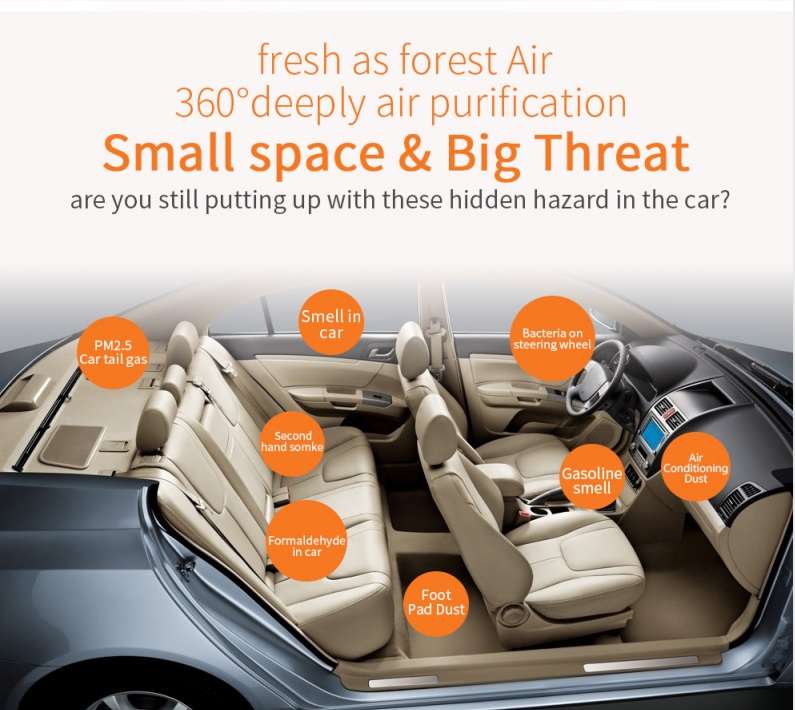Demand drops as several new competitors enter market
One of the few silver linings encircling China’s huge clouds of smog has been the booming market for air purifiers. So bad is the air in big cities such as Beijing and so great the risk to health that Chinese consumers have been willing to pay more than Rmb2,000 ($330) for a purifier to clean the air they breathe.
But for several companies who rode the boom, bad air no longer generates bumper revenues. A surge in entrants into the China market for air purifiers has coincided with a market slump as the air quality in many cities has improved this year, companies and consultants said.
Airgle, a US company targeting the high end OEM air purifier market via 250 stores in China and online sales, is “seeing a 10 to 20 per cent decrease in sales this year so far,” said Ivan Lo, president of Airgle. The reason he gives is an upsurge in the number of competitors.

Bengt Rittri, chief exeutive of Blueair, a market leader, also points to an increasingly crowded market after “200 new competitors entered the market last year”. He says that the boom of 2013 played a part in drawing companies to seek entry into the market. “Suddenly the market exploded and everybody wanted a china air purifier,” Mr Rittri said of the boom years.
Thomas Talhelm, founder of Smart Air, a DIY air filter social enterprise that is working to bring a low-cost product to the market, sees the recent slump in prices as inevitable. “Air purifiers were selling for around $1,000 to $500 — a ridiculous amount of money, especially considering that you would need one for the bedroom, one for the living room, etc,” said Mr Talhelm.
“Air purifiers are not patented technology, they are made of the same material as a polyester shirt. They can be produced for $30. Even if Smart Air didn’t come along, the market would eventually figure that out,” he added.
Some 5.1m air purifiers were sold across China in 2014, according to a report produced by China Market Monitor, a market research company. There has been an 18 per cent decline in sales in the first half of 2015, however, and the company forecasts a 13.1 per cent drop in the second half. The report attributes this drop in sales to the improvement of air quality in cities.
All View Cloud, a Beijing-based data analysis company, also reports a contracting market, placing the total turnover of air purifier sales at Rmb5.81bn ($907m) in the first half of the year, a 20.5 per cent year-on-year fall, with sales volumes down 10 per cent.
Worsening air quality levels had led to a boom in the air purifier market in 2013. Rapidly growing demand led to companies, including Dyson and Airgle, rushing to enter the market. Research firm Euromonitor reported a 47 per cent growth in the market in 2014, citing a lack of government intervention to reduce air pollution and a growing penetration among a wider group of consumers as key drivers.
There is evidence that air pollution in Beijing has improved since 2013, with the average Air Quality Index falling to 156 in the first quarter of this year, down from 208 in the first quarter of 2013. As a baseline, US standards regard any reading over 150 AQI as “unhealthy”.
The link between air quality and purifier sales is demonstrated by short-term spikes in response to events. A huge warehouse explosion in Tianjin in August this year triggered a surge in concerns over air quality, with sales in Beijing and Tianjin rising 500 per cent in the week following the explosion, according to Suning, an electrical appliance chain.
Mr Talhelm of Smart Air also finds that “air purifier sales are very clearly correlated with spikes in pollution in the very short term. When the AQI shoots up to 300, people buy purifiers”.
However, growing competition and improving air is not all bad news for air purifier manufacturers. Mr Rittri of Blueair says the company’s diversified product range has helped maintain sales.
“Blueair has a range of products, from low-, mid- and high end, so competition has not hurt us. Last year we doubled our sales,” Mr Rittri said. “This year we will continue to grow, particularly as we have new products launching.”
Dyson, the UK home appliances company, did not give details on their air purifier sales but said that the company’s business in China — which includes sales of air purifiers, fans and vacuum cleaners — tripled in size in the past year. This year growth is set to continue, Dyson said, but declined to give specific details.
Source: China air purifier sales slide as air quality improves
Source: China air purifier sales slide as air quality improves

Comments
Post a Comment